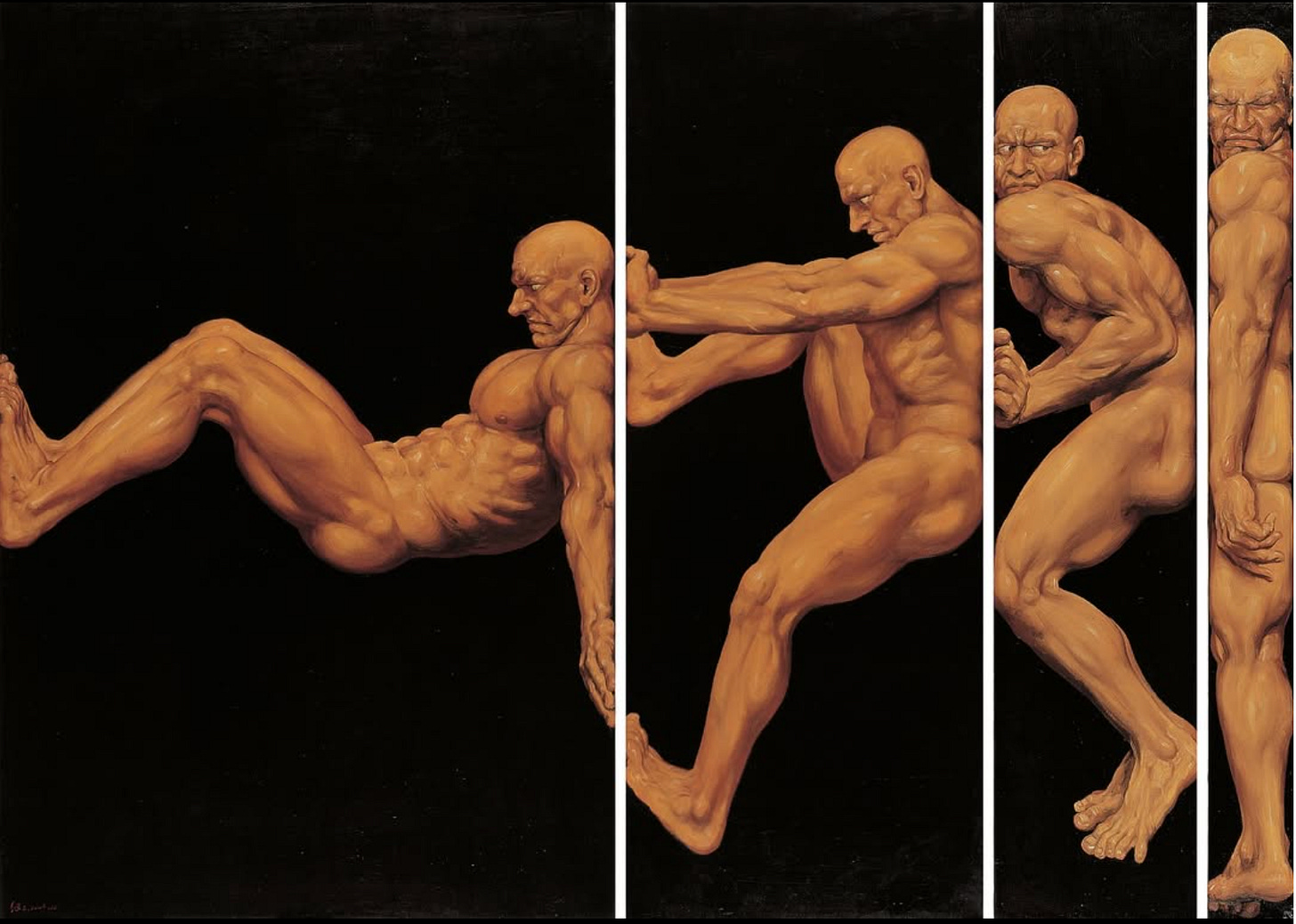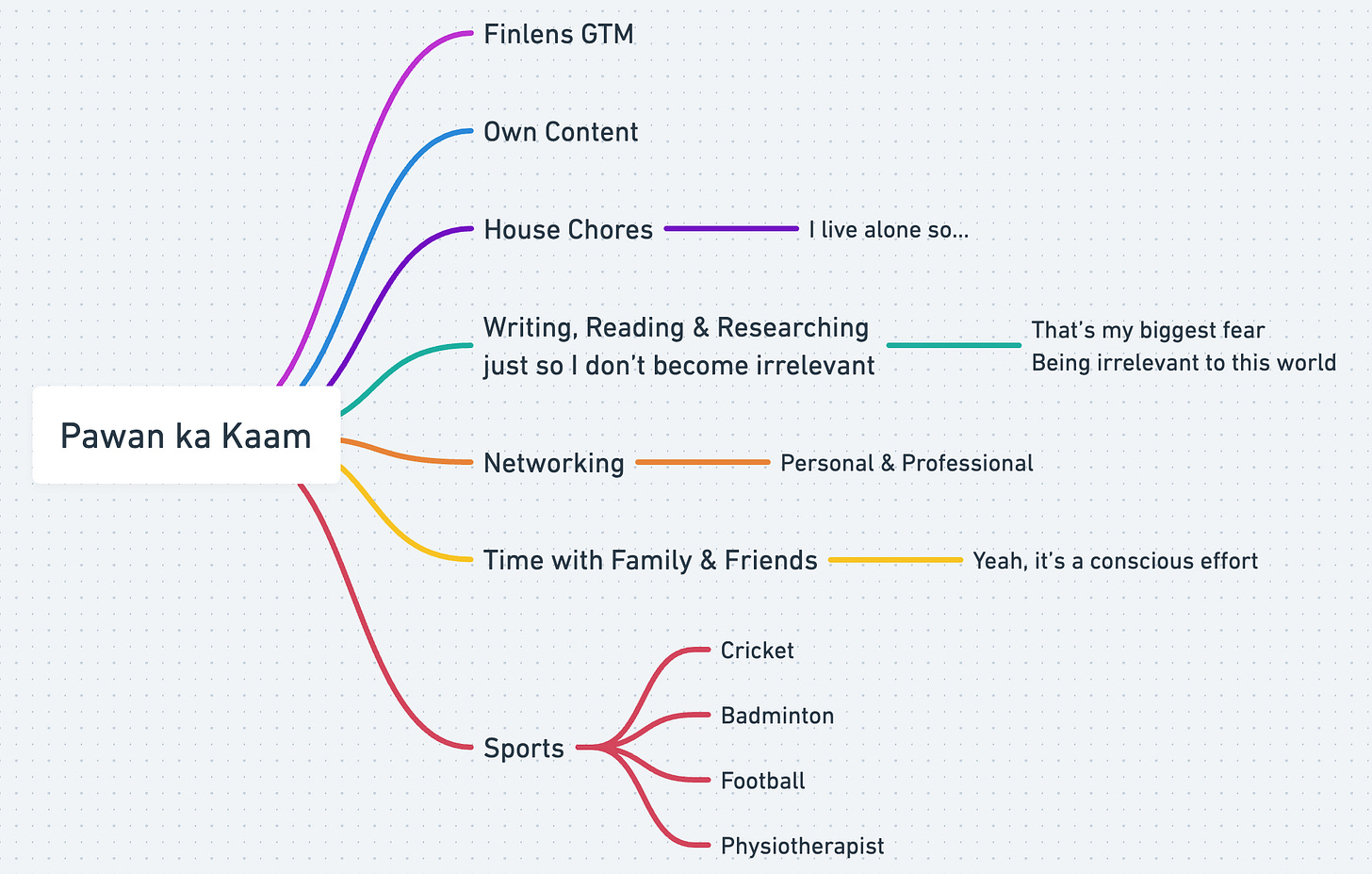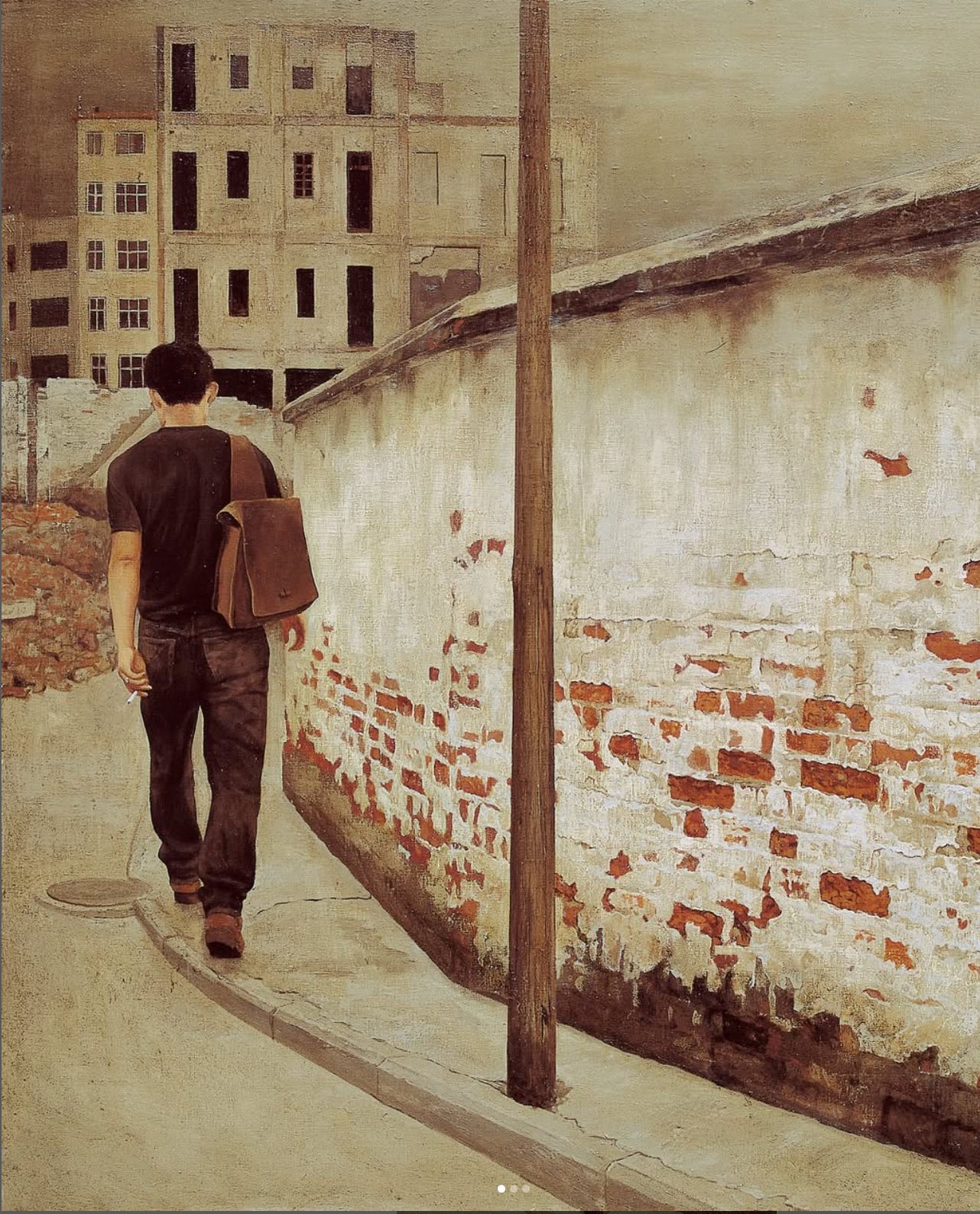measured by output
Why work became a badge of honour and what it’s costing us
Hi folks,
I can’t bring myself to write this newsletter if the topic doesn’t hit me in the gut. This is my labour of love and not some deadline. Most of the time I wait for an observation, a conversation, or just a line that makes me pause and think.
Last week, my friend Trina said something that stuck. She works in a non-profit and moonlights as a matchmaker, although she hasn’t managed to help me on that front. In the middle of our chat she said, “individualism is just leading to templated mass production of likeable personalities.”
That sentence kept ringing in my head. Around the same time I was exploring the idea of opening a flower boutique with a coffee and book shop inside it. I went down the rabbit hole, reading, researching, and talking to people, until I remembered that I already have a job that needs me. Which led to a bigger spiral.
Why this job? For monthly cash flow.
But cash flow can come from other places too. Maybe if I cut down on the lifestyle I’ve built, I wouldn’t even need as much.
A hundred thoughts later, I was staring at the real question: what does work actually mean, and why am I doing what I’m doing?

The Theater of Busyness
I made a mind map of everything I now call work, because there’s just too much beyond the job itself. This doesn’t even include travel, leisure, or the days I’m just lazy. Recently I even started learning piano for cognitive development, so I squeeze that in too.
Work today feels less like a job and more like a pressure test. Everyone I know is running on client demands, deadlines, performance reviews, or investor calls. The rhythm isn’t about steady progress anymore. It’s about proving you’re not falling behind. If you’re not stretched thin, people assume you’re not doing enough.
But work wasn’t always this way. For most of human history, work meant survival. You hunted, built shelter, grew food. Nobody glorified being tired. Stress wasn’t proof of worth, it was a warning sign (I would love to go back to the stone age.)
Somewhere along the way, that flipped. Stress turned into a status symbol. You’ll hear someone say, “I slept only three hours last night,” and there’s pride hiding in their tone. Exhaustion has become evidence that you matter.
Work isn’t just done anymore, it’s performed. People don’t only show up to do their jobs, they show up to look busy. Seen those reels about “GRWM for Office”?
Masculinity and Scoreboard
There’s a line in the song Afsanay that goes: “Send my cheque, मुझे बात चीत नै चाहिए. I got bills, मर्द के अलग होते कायदे. अगर कमाते नै, मर्द हो तुम काय के.”
That one verse says what men are told their whole lives. You are what you earn. You are the bills you pay, the possessions you collect, the pressure you survive. If you don’t provide, then you’re not even a man. Joy, curiosity, kindness, none of these make it onto the scoreboard.
I’ve lived under that scoreboard too. If I’m not visibly busy, not producing, not stretching myself thin, it feels like I’ve already lost. And the strange part is, we start wearing that pressure like a crown. Stress becomes proof of masculinity.
Then I think of a line from AleemRK’s Wake Me Up: “Sudhar रहा होता हूँ जब होता हूँ गायब, तुम ये मत समझना के आऊँगा नै लौट के.”
It reminds me that growth doesn’t always happen in public. Sometimes it happens when you disappear, when you stop performing, when you work on yourself quietly.
But the way we’ve built masculinity, that kind of invisible progress doesn’t count.
Even Daddio (2023) wrestles with this. In one scene, Sean Penn tells Dakota Johnson, “A man’s gotta provide. That’s the job. That’s the deal.” And she asks if intimacy can even survive in a world that keeps measuring men only by output. The ride isn’t really about JFK to Manhattan. It is about how survival and ego have eroded closeness, how worth gets confused with work.
That’s the hardest part. I critique grind culture, but I’m part of it too. I introduce people by what they do. I slip work talk into casual chats with friends. I measure myself by calendars and cash flow. Meanwhile, the invisible work, the 0.1% progress, the laughter, the rest, the relationships, slips away.
What Afsanay, Wake Me Up, and Daddio all echo in their own way is this: men are trained to prove themselves by output, but the cost is often their inner life.
If you don’t perform, you’re invisible. If you step back to grow, people assume you’re falling behind. That’s the paradox I’m trying to live with. And maybe the one I’ll never fully solve.
I don’t have neat answers. I’m still figuring out what work should mean beyond stress, scoreboards, and performance. But if there’s one thing I’m sure of, it’s this: the invisible work counts. The laughter, the rest, the small progress, the relationships.
So let me leave you with this, when you say you’re working, are you proving something to others, or are you building something that keeps you alive?
See you next week, hopefully something sparks.




Coming to the next part , I have some conflicting thoughts in that. I understand how world sees men to be a provider and if a man not do that people see them as failure but this thought is not gender specific. A woman always seen to be a good wife , good mother , good daughter who handles home. Who should have and have ability to look after house, family , relationship. So basically all person should do something , some work , some growth , not really specific that bring money or food to the table or not.It totally depends on you how you work and be happy in whatever you do and you ignore “Chaar logo ki baatein “ and their thoughts.
Don’t know what to write on this week newsletters but it also opened so many questions .. Indeed all that we do in life which brings money is a badge of honour for sure but not only to others for us also . Like money gives freedom , freedom to do most of the things in this world . Also it is important that we don’t sacrifice our happiness in search of that freedom.